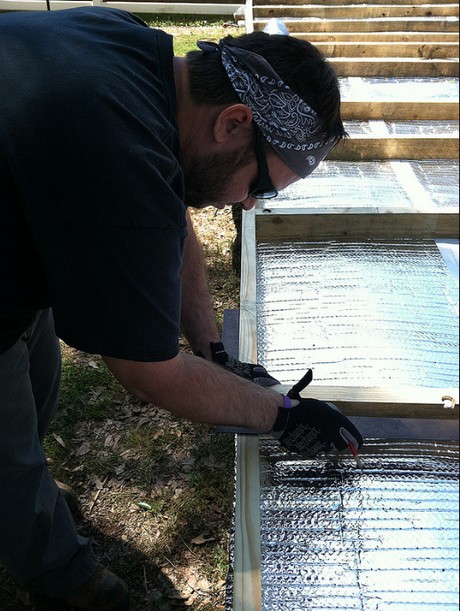
What is sustainability has been written by Andrew Odom, blogger, photojournalist, and hobby farmer.
I want to be perfectly honest. I don’t fully understand the sustainability movement. I can’t seem to grasp what it means to have the capacity to endure. Endure? That is what sustain means, right? To endure? We live in a largely greenwashed culture where keywords and buzz phrases like sustainable and eco-friendly and “green” indicate some higher level of preparedness, consciousness, and ecological awareness. But is this true? And what about all this sustainable living nonsense? If I am to follow my own definition doesn’t that just mean an enduring lifestyle? I think to live a sustainable life we first have to really get to the root of it; the meat and potatoes of endurance.
Many people accuse my family of living sustainably. This may be true, but only because we practice solid stewardship. We focus on being stewards; managers of another’s property. More on that later though.
Back to sustainable and sustainability. The word sustainability is derived from the Latin ‘sustinere’ (tenere, to hold; sus, up). Dictionaries provide more than ten meanings for sustain, the main ones being to “maintain”, “support”, or “endure”. Sounds so dull, doesn’t it? However, since the 1980s sustainability has been used more in the sense of human sustainability on our planet resulting in the most widely quoted definition of sustainability and sustainable development, that of the Brundtland Commission of the United Nations on March 20, 1987: “sustainable development is development that meets the needs of the present without compromising the ability of future generations to meet their own needs.” 1
In the context of my life though (as well as that of my colleagues, my peers, etc) sustainability is more about the destruction of the Earth’s ecosystems. The total environmental impact of a community depends both on population and impact per person, which in turn depends in complex ways on what resources are being used, whether or not those resources are renewable, and the scale of the human activity relative to the carrying capacity of the ecosystems involved. Did I lose you yet because I think I lost myself!
Sustainability is the practice of a basic tenant – a theory even - that we learned as children. If it isn’t yours, don’t touch it. If you don’t touch it, you can’t break it. If you can’t break it, you won’t have to worry about trying to replace it. The same goes for our planet. We are created to be stewards of this planet. We don’t own Earth. It is not ours. We were created to dwell on this planet. The soil that runs between our toes? A gift. The air we breathe? A gift. The beautiful colors that enhance the landscape season after season. You guessed it. A gift! We are but the managers of this ball we call home. It isn’t ours so we shouldn’t touch it in an abusive way. If we don’t touch it abusively then we can’t break it. If we don’t break it we don’t have to worry about replacing it. In essence we maintain the delicate balance of the cosmos.
I know. Sounds a bit “crunchy” to me too. In fact, you may be thinking that I am writing this post with my shirt off, paint smeared under my eyes, and the sounds of nature gently playing in the background as I quietly hum Kumbaya. Not so. I am a normal guy who types on a computer for a number of hours a day, wears boring Fruit of the Loom t-shirts, and breaks for coffee at random times. But I have come to understand sustainability in a way that I never thought possible. In fact, I have come to live sustainability. For my family it has moved beyond an active choice even. It is part of our life. In fact, it is our life. We have transitioned into taking lighter steps, consuming less energy, recycling and repurposing more, and giving thanks for what we have without coveting what we don’t.
By now our cover may be lifted. We may be exposed as those Tiny r(E)volution people. And that is okay. We wear our crowns with pride. We are a family of three that lives in less than 250 square feet. We value our relationship with each other and the world around us. We have gardens and we raise our own animals. From them we gain meat, oil, and compost.
Our veggies are food and gifts to our neighbors around us. Our chickens give us eggs and meat but also cultivate the ground we walk on making the soil a rich, cool, black. That, my friends, is sustainability. It is a study of harmony between our life and the lives around us be they animal, vegetable, or mineral. We waste little; want nothing. We call our way of life a r(E)volution because it is 1/2 revolution and 1/2 evolution. It is a partnership with our Earth and a promise to be the best stewards we can be.
I implore of you. The next time you are confronted with the word sustainability, don’t be frightened. Don’t let it green your glasses and have you seeing campaign slogans. Confront it head on knowing that it is nothing but a fancy word for the action of give and take; repeated indefinitely.
1Definition courtesy of Wikipedia

